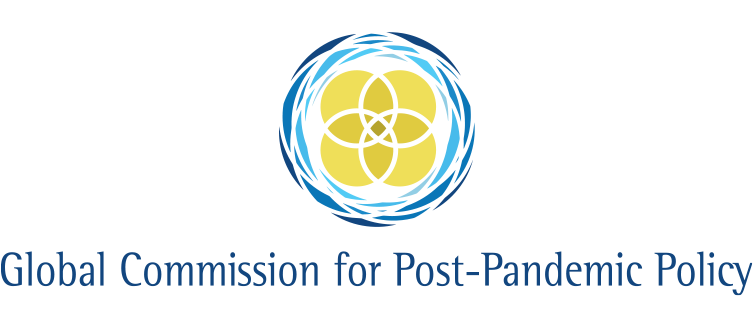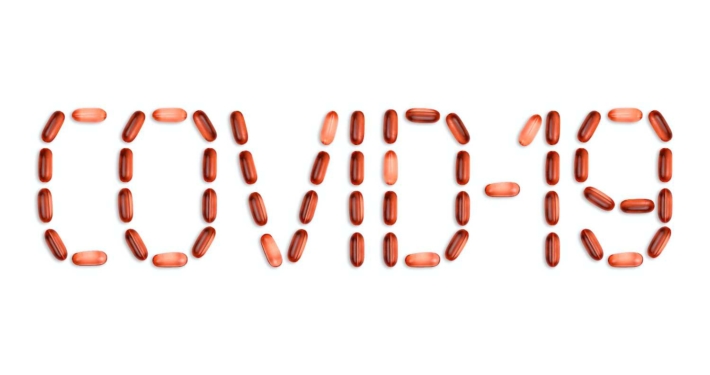The Pandemic, week to May 3rd
Health
Globally, coronavirus cases have plateaued but remain higher than at any previous point in the pandemic, with crisis-gripped India repeatedly topping records for new daily cases and deaths, becoming the first country to post over 400,000 daily cases on May 1st and officially recording 3,689 daily deaths — with reports from the country suggesting the true death toll could be much higher.
India’s catastrophe has overshadowed a worsening situation across Latin America, which accounted for 35% of all official coronavirus deaths worldwide during the final week of April despite only representing 8% of the global population. In recent days, death tolls have hit new highs in Argentina, Colombia, Peru and Uruguay, once held up as an exemplar of controlling COVID-19 but now recording one of the highest per-capita death rates in the world. Meanwhile, Brazil became only the second nation to mark 400,000 total deaths during the pandemic, though cases there have begun trending downwards.
India remains short of critical medical supplies due to manufacturing delays and raw material shortages. Several countries have started sending resources to India, including hundreds of oxygen concentrators from the UK, Russia and EU countries, 28 tonnes of medical supplies in one flight from France, and an initial three shipments of $100 million worth of medical supplies pledged by the US. But as the crisis becomes more acute and deaths soar, some Indians are turning to unproven medical treatments or the black market for life-saving medications that are in short supply, reports AP. Meanwhile the government announced a huge inoculation effort, declaring all adults eligible for vaccines from May 1st . A sluggish vaccine rollout has so far seen only 2% of Indians fully vaccinated and 10% of the 1.4 billion population with one dose. Daily vaccine rates have dipped since early April from 3.6 million to less than 2.5 million, while the chief executive of India’s biggest vaccine manufacturer has warned that shortages of doses could last months.
In the USA, 100 million Americans (39% of the adult population) have now been fully vaccinated and concern has switched to the fact that demand for jabs has slowed in recent weeks, even as vaccinations were opened to all adults. Furthermore, about 8% of those who have received a first dose of either the Pfizer or Moderna vaccines have not returned for their second. There has been a significant decline in virus cases in over half of US states, although some others are experiencing a renewed surge, such as Oregon where further restrictions have been implemented in a third of its counties. The success of the US vaccine rollout has seen more American-made vaccines exported to its neighbours, with Mexico receiveing an initial batch of Pfizer vaccines, the first time the drugmaker has delivered abroad from US facilities, and Canada too is expected soon to supplement its EU-made Pfizer doses with a US supply.
The World Health Organization (WHO) has given emergency approval for the use of Moderna’s vaccine, months after its approval and deployment in the US and after long delays as the WHO struggled to get data from the drug-maker. Similar approvals for China’s Sinopharm and Sinovac are expected imminently. Many countries without advanced drug-testing facilities rely on the WHO’s rulings to know which vaccines are considered safe to use. Although Moderna shots are not expected to immediately flood into developing countries, the company said it was “actively participating in discussions with multilateral organizations, such as COVAX, to help protect populations around the world.”
In China, vaccine makers are looking into mixing jabs to improve efficacy and on producing a booster jab. Earlier in April, the head of China’s Center for Disease Control said their current domestic vaccines offered low protection against coronavirus and mixing them was among the solutions being considered to improve efficacy, although he later tried to walk back his comments.
Brazil’s health authority said it would not recommend importing Russia’s Sputnik V vaccine, saying questions remained over its development, safety and manufacturing. Russian authorities, who have been energetically promoting Sputnik V in Latin America, responded that it would continue trying to convince Brazilian regulators, saying: “If data is missing, it will be provided. There should be no doubt in this.”
In the Democratic Republic of Congo, 1.3 million vaccine doses are being “re-deployed” to other African nations, with the country’s health minister acknowledging that his government will not be able to administer the jabs before they expire at the end of June. The DRC suspended the rollout of AstraZeneca shots after several European countries raised concerns over links with rare blood clots. Beneficiaries of the redeployment include Angola, which received half a million doses on April 29, plus Ghana, Togo, the Central African Republic and Madagascar. The DRC will make back the shortfall through future allocations under the COVAX program.
Economy
Both the US and eurozone economies have a good chance of regaining pre-pandemic levels of economic activity by the end of the year, with economists revising up forecasts after data showed more resilience than expected. The US economy grew at an annual rate of 6.4% last quarter, with expectations that the current quarter will be even better. President Biden’s $1.9 billion stimulus is having an effect, along with widespread vaccinations, declining viral cases, and business reopenings — perhaps best symbolised by Disneyland opening its doors for the first time in 13 months.
The eurozone fell back into recession, shrinking by 0.6% in the January-to-March period, but the contraction was smaller than expected. Meanwhile the governments of the eurozone’s three biggest economies all announced a ramping up of their financial recovery plans, aiming to utilise billions of euros from the EU’s €750 billion recovery fund beginning this summer. France and Germany, who should get €40 billion and €30 billion respectively, announced spending on digitalisation and fighting climate change. Italian lawmakers approved a €222 billion spending plan on April 27.
In Barcelona, a trial concert with 5,000 attendees resulted in no major coronavirus outbreaks. Concert-goers were screened and tested for COVID-19 using antigen tests and required to wear FFP2 masks. The concert organisers described “light at the end of the tunnel” as hope grew for mid-sized cultural events returning to Europe after a 14-month hiatus. A similar experiment took place at a two-day club event in Liverpool attended by some 6,000 partygoers.
AstraZeneca announced that it earned $275 million in revenue from about 68 million vaccine doses delivered in the first three months of 2021. The sum represented 4% of AstraZeneca’s revenue for the quarter, dwarfed by other products such as its best-selling cancer drug Tagrisso which brought in $1.1 billion over the same time period. The drug-maker has pledged to sell its vaccines at cost. Competitors Pfizer and Moderna expect to bring in $15 billion and $18.4 billion this year respectively from their higher-priced vaccines.
Taiwan has seen the fastest economic growth in a decade, growing by 8.16% in January to March from a year earlier. Taipei has largely attributed the boom to a surge in demand for electronics, driven partly by more people working from home during the pandemic. Taiwanese exports of hi-tech components increased by 28.37% in the first quarter.
In Côte d’Ivoire, French economy minister Bruno Le Maire outlined how a summit in France on May 18th will aim to prevent developing countries, especially in Africa, falling behind during the post-COVID recovery. He said the summit would look at ways to support the region’s small and medium-sized firms, including through loan guarantees, via direct financing worth $23 billion allocated by the International Monetary Fund. These businesses have struggled for financing during the downturn, which shrank the combined economy of sub-Saharan Africa by a record 1.9%, pushing employment down by 8.5% and leaving 17 countries in or close to debt distress.
Several countries have begun making plans to receive foreign visitors over the summer, as vaccine rollouts continue apace. Tourism-reliant Greece added to a growing list of countries for which entry restrictions, including a seven-day quarantine, will be waived for arrivals with a COVID vaccination certificate. Countries on the list include other EU members, the UK, the US, Australia and Russia. Meanwhile, France announced plans to open its borders to foreign tourists starting June 9th. And in the US, travel industry organisations have renewed their push for the government to allow more international travellers amid warnings that the country could fall behind other destinations. Meanwhile, in China, tourists made a total of 18.3 million trips by rail on the first day of the May holiday. Labour Day marked the first long break of the year for many Chinese, with a domestic outbreak of COVID-19 having cancelled February’s Lunar New Year celebrations.
Politics
Countries across the globe celebrated International Labour Day on May 1st, with many events last year having been cancelled. France saw slimmed down but energetic — and sometimes violent — demonstrations, with protesters demanding more labour protections in an economy turned upside down by coronavirus. In Turkey and the Philippines, where restrictions remain in place to combat the latest waves of infections, police prevented May Day protests and made hundreds of arrests.
In Germany, domestic intelligence services have begun tracking an increasingly aggressive COVID denier movement known as Querdenken, German for “lateral thinking”. Intelligence officials noted that the movement of conspiracy theorists has close ties to far-right extremist groups such as the Reichsbürger, which refuses to accept the modern German state. On April 21, police dispersed a Querdenken protest of 8,000 people in Berlin.
Prince Harry and Meghan Markle, Duke and Duchess of Sussex, will chair efforts by international advocacy group Global Citizen to raise money to deliver COVID-19 vaccines to medical workers in the world’s poorest countries. The couple will also appear at the pre-recorded “Vax Live: The Concert to Reunite the World”, due to be broadcast on May 8. Several world leaders will be in attendance, including US President Joe Biden and Vice President Kamala Harris, French President Emmanuel Macron and Canadian Prime Minister Justin Trudeau. The fundraising event will be hosted and headlined by Jennifer Lopez and Selena Gomez.
In Thailand, as the government struggles to bring a surge in coronavirus infections under control, it was made compulsory to wear masks in public with effect from April 26th. Among the first to break the rule was the Thai Prime Minister, Prayuth Chan-ocha, seen maskless at a government meeting published on his official Facebook page. He agreed to pay the fine for first-time offenders of around $190.
GCPPP Newsletter
We now publish a weekly newsletter to inform friends and supporters of the Global Commission’s progress and to provide updates when new content is published. Please sign up here:


 Volodymyr Hryshchenko, Unsplash
Volodymyr Hryshchenko, Unsplash
 Adam Nieścioruk, Unsplash
Adam Nieścioruk, Unsplash
 visuals, Unsplash
visuals, Unsplash


